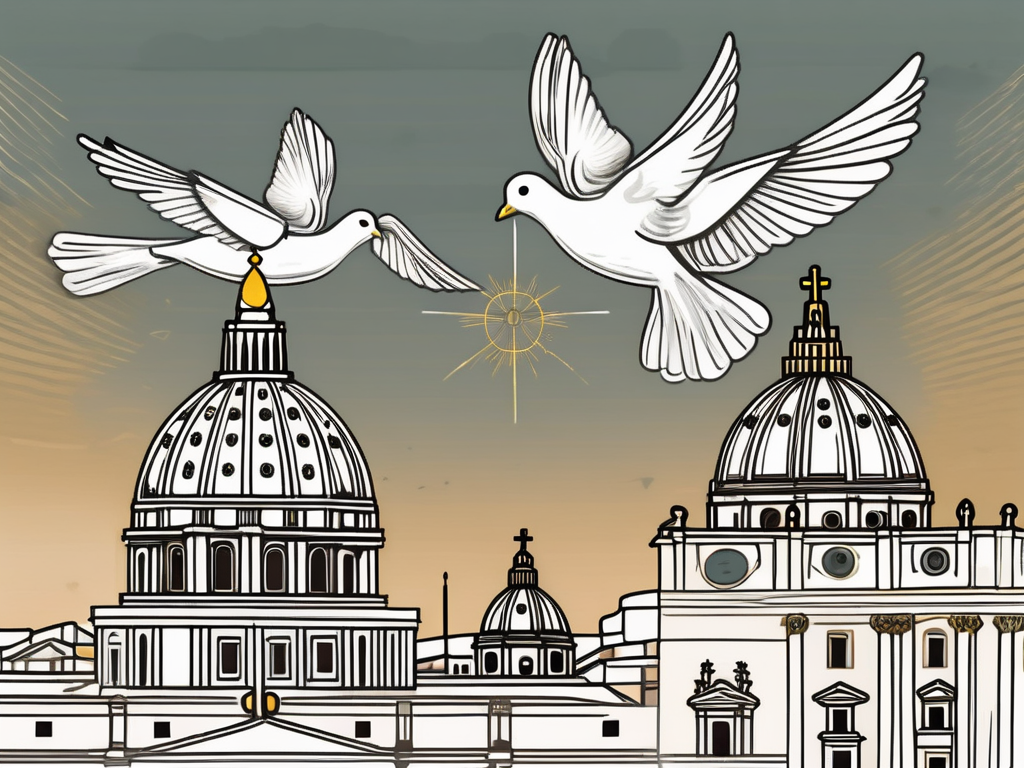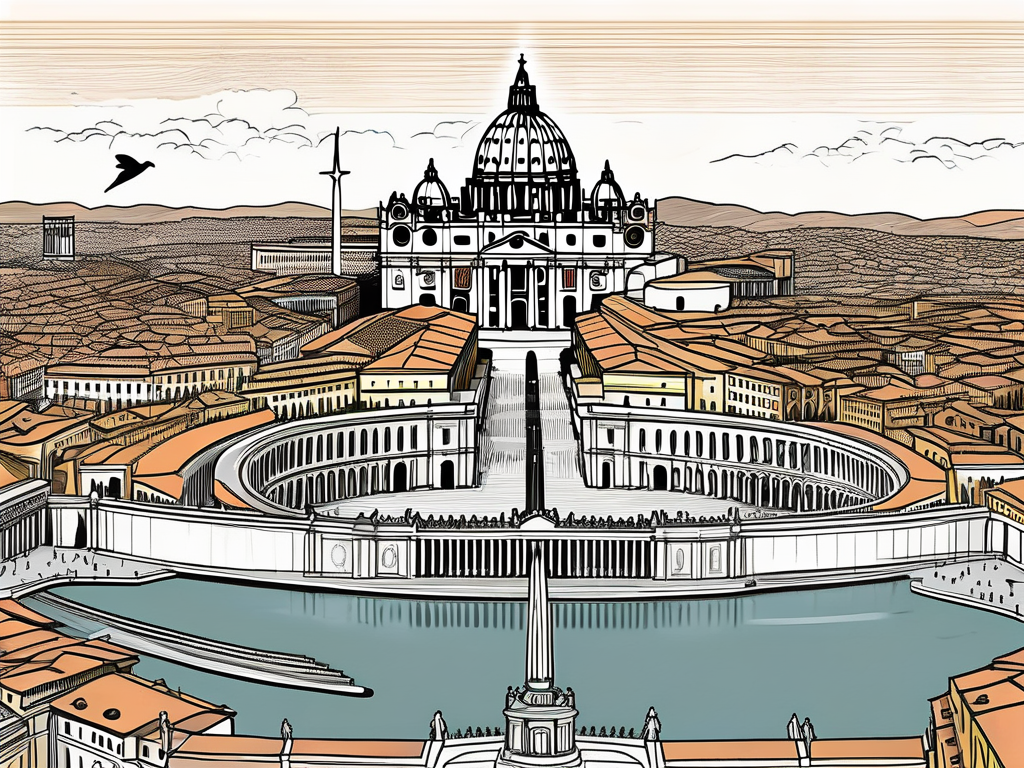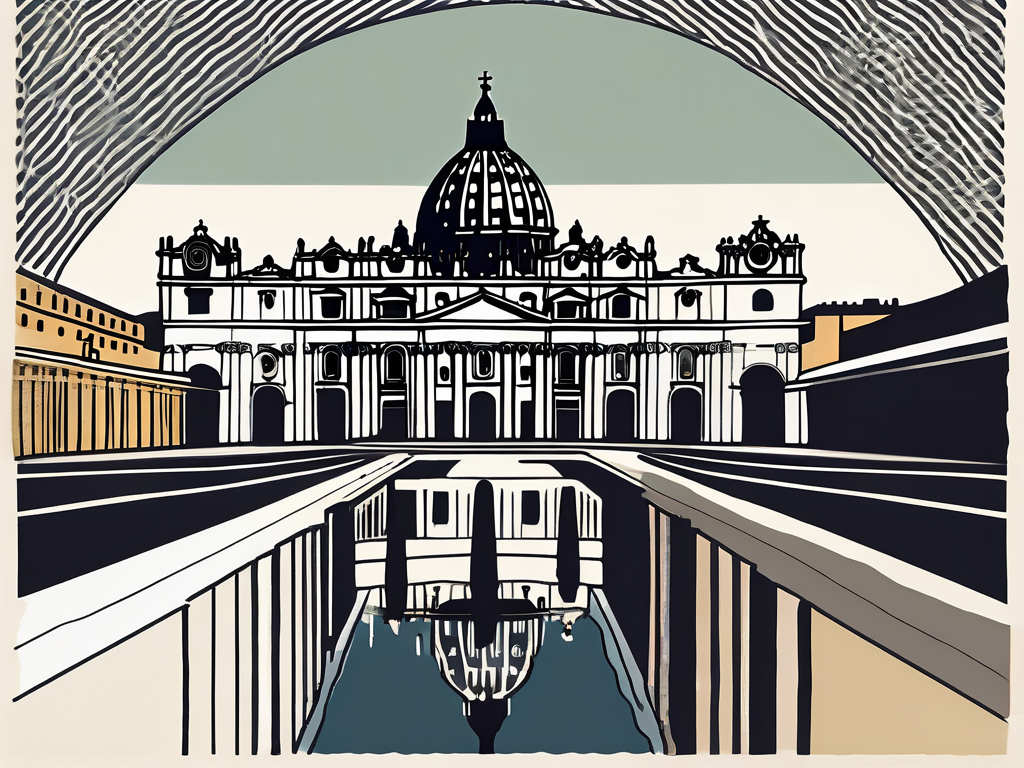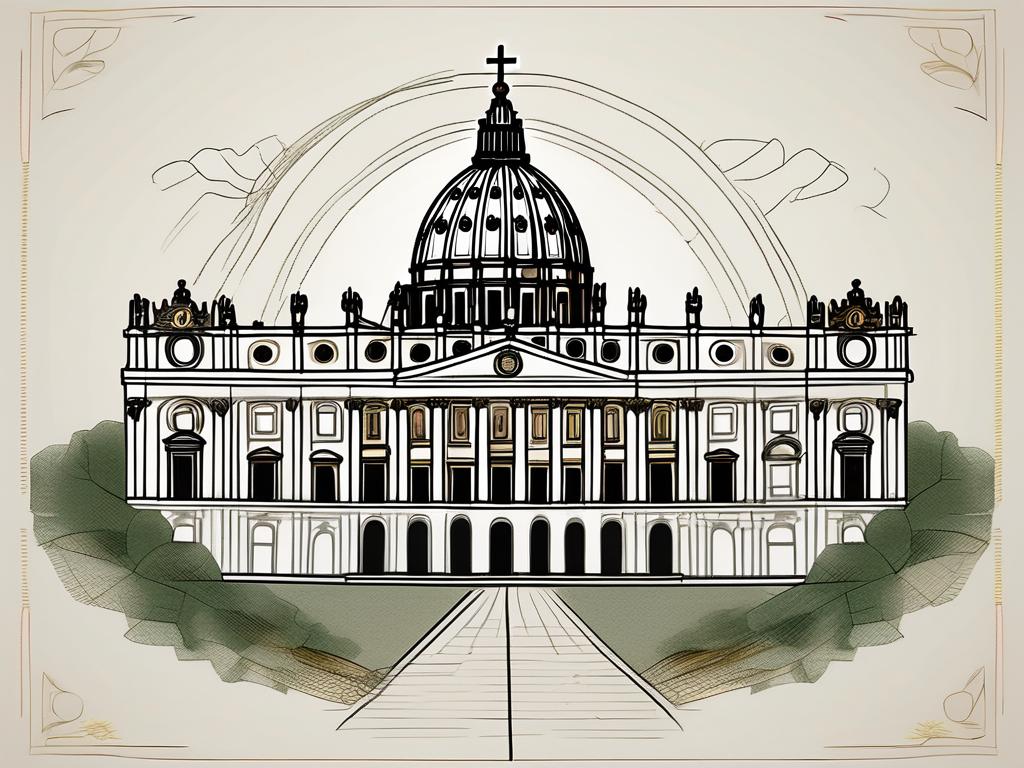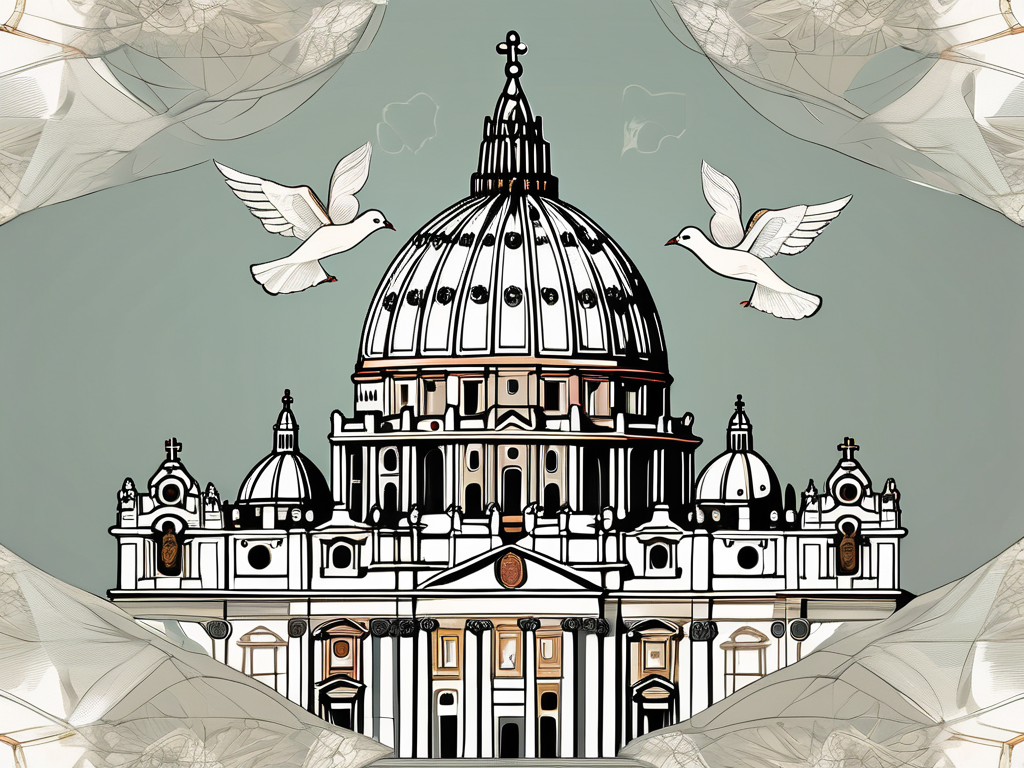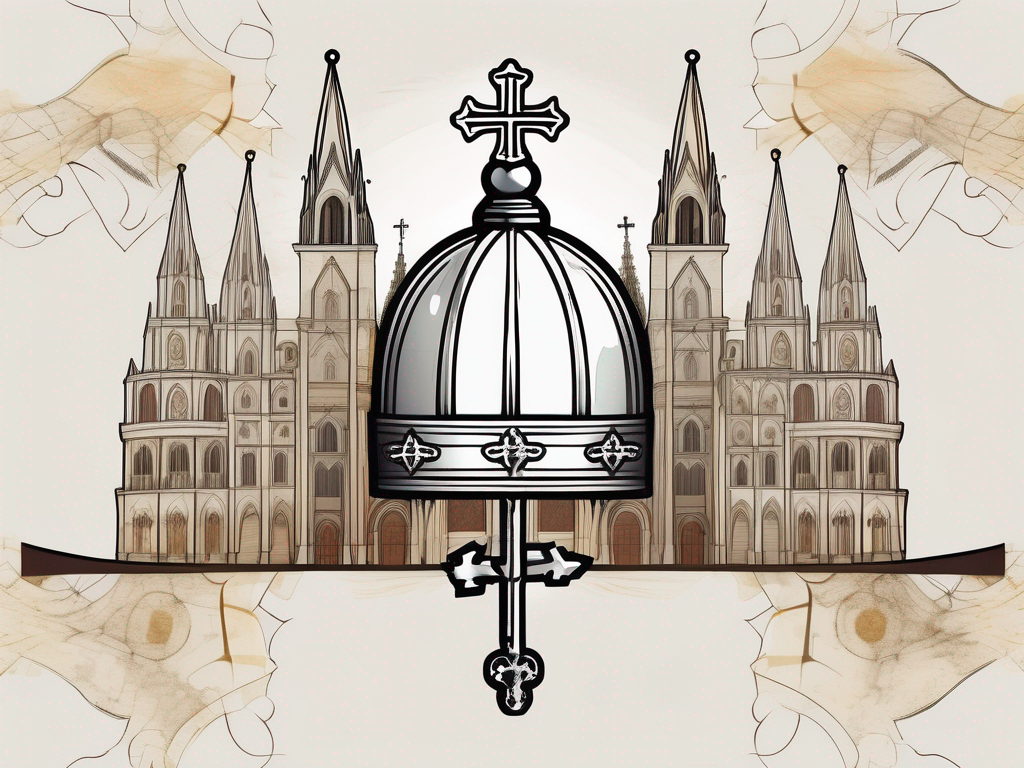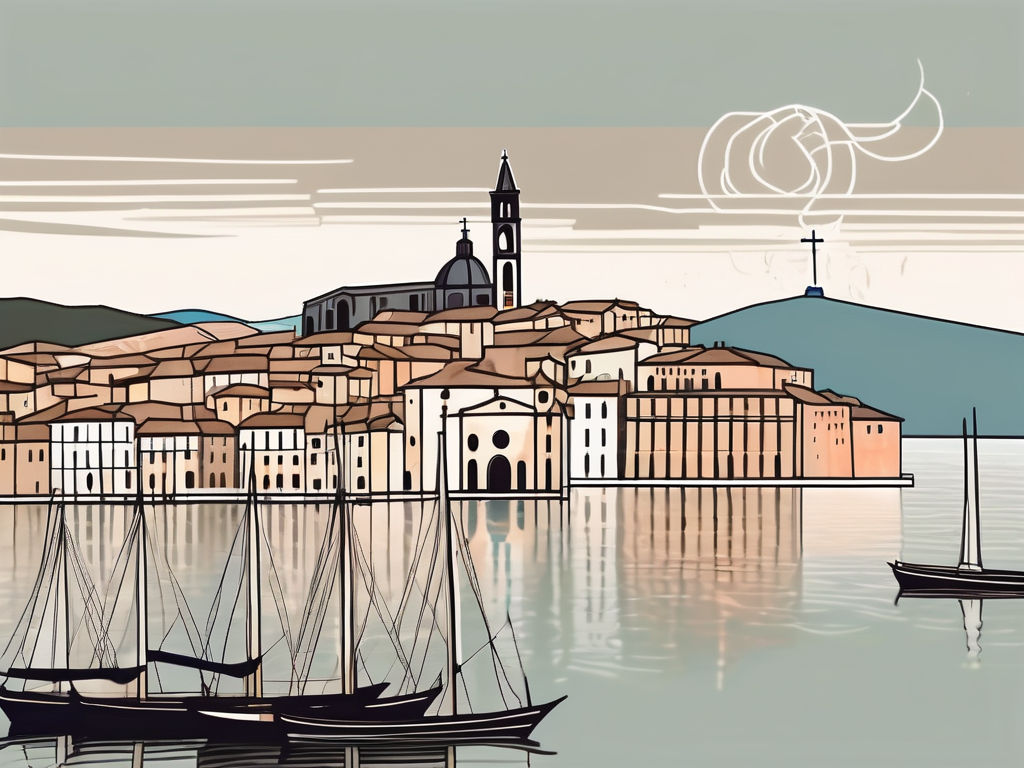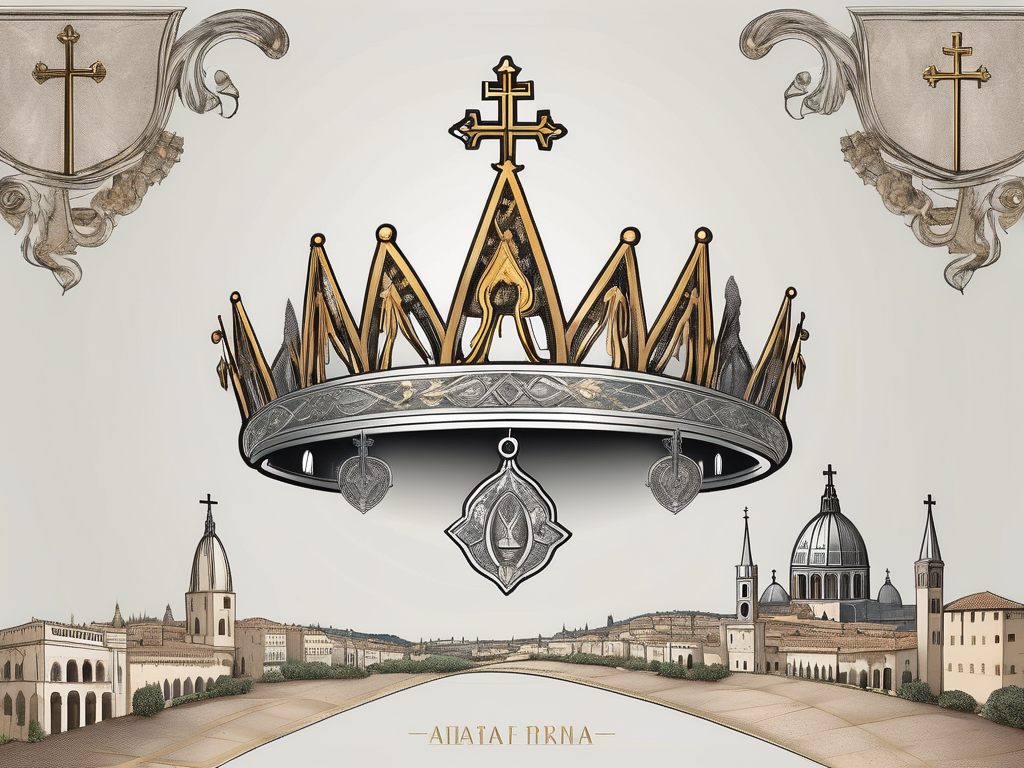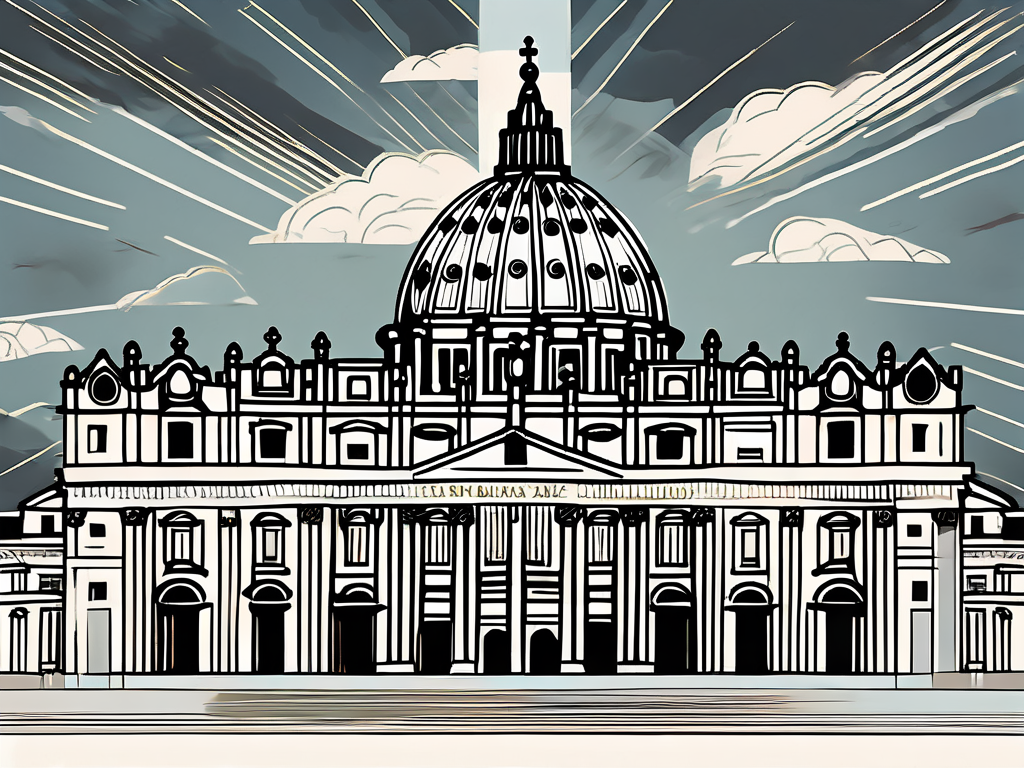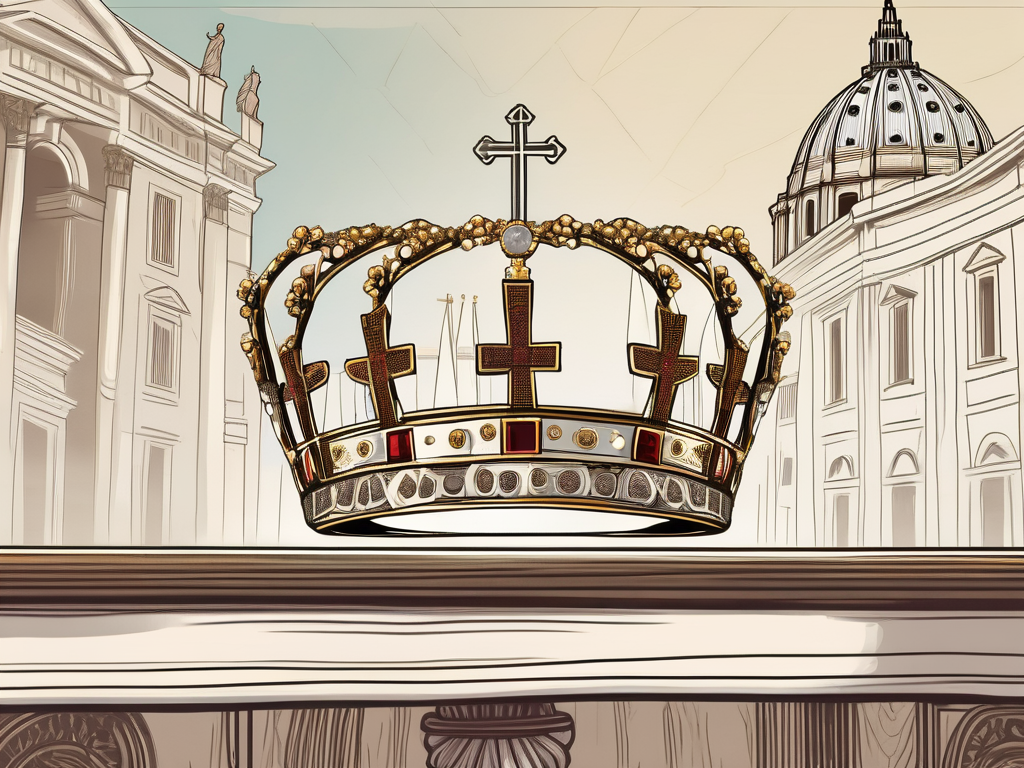Pope Innocent IV, born as Sinibaldo Fieschi, had a remarkable journey that left an indelible mark on the history of the Catholic Church. From his humble beginnings to his ascension as Pope, his life was filled with pivotal moments and significant contributions. Let’s delve into the details and discover the fascinating story of Pope Innocent IV.
Early Life and Education of Sinibaldo Fieschi
Sinibaldo Fieschi was born into a noble family in Genoa, Italy. His birth and family background played a pivotal role in shaping his character and perspective. Growing up, he was instilled with values of faith, determination, and excellence. Sinibaldo’s education was carefully curated, emphasizing both secular and religious studies. His fervent desire to deepen his knowledge led him to embark on a remarkable journey of education and early ecclesiastical career.
Birth and Family Background
As a member of the Fieschi family, Sinibaldo was surrounded by the influence and prestige that came with their noble status. This nurturing environment provided him with a solid foundation of integrity and a deep sense of responsibility.
From a young age, Sinibaldo was exposed to the rich cultural heritage of Genoa. The city’s bustling markets, vibrant festivals, and magnificent architecture served as a constant reminder of the importance of tradition and heritage. Sinibaldo’s family, known for their patronage of the arts, encouraged his appreciation for music, painting, and literature. These early experiences not only shaped his aesthetic sensibilities but also instilled in him a profound love for the arts.
Furthermore, Sinibaldo’s family was deeply involved in the political affairs of Genoa. Their influence and connections allowed him to witness firsthand the intricacies of governance and diplomacy. This exposure to the world of politics would later prove invaluable in his ecclesiastical career, as he navigated the complex web of alliances and rivalries that characterized the medieval Church.
Education and Early Ecclesiastical Career
Seeking to broaden his horizons, Sinibaldo pursued higher education, immersing himself in the study of theology, canon law, and philosophy. His insatiable quest for knowledge led him to renowned institutions across Europe, where he engaged with prominent scholars and intellectuals of his time.
During his studies, Sinibaldo developed a deep fascination with the works of ancient philosophers, particularly Aristotle and Plato. He delved into their writings, exploring the realms of metaphysics, ethics, and political theory. This intellectual exploration not only broadened his understanding of the world but also shaped his theological and philosophical perspectives.
As Sinibaldo’s reputation as a scholar grew, he caught the attention of influential figures within the Church. Recognizing his potential, they encouraged him to pursue a career in the ecclesiastical hierarchy. Sinibaldo, driven by a desire to serve and make a difference, embraced this opportunity wholeheartedly.
Upon his ordination as a priest, Sinibaldo embarked on a journey that would take him to various ecclesiastical positions of increasing importance. He served as a chaplain, a bishop’s secretary, and eventually rose to become a cardinal. Along the way, he encountered numerous challenges and controversies, but his unwavering commitment to his faith and his relentless pursuit of justice propelled him forward.
Throughout his early ecclesiastical career, Sinibaldo became known for his exceptional organizational skills and diplomatic finesse. He played a crucial role in mediating conflicts, forging alliances, and promoting unity within the Church. His ability to navigate the intricate dynamics of power and influence earned him the respect and admiration of his peers.
In conclusion, Sinibaldo Fieschi’s early life and education laid the foundation for his remarkable journey in the ecclesiastical hierarchy. His noble birth and family background instilled in him a sense of responsibility and integrity, while his education broadened his horizons and deepened his understanding of theology and philosophy. Sinibaldo’s early ecclesiastical career showcased his exceptional organizational skills and diplomatic finesse, setting the stage for his future achievements within the Church.
Ascension to Papacy as Pope Innocent IV
After years of tireless dedication to serving the church, Sinibaldo’s unwavering commitment caught the attention of his peers. In a historic turn of events, he was elected as Pope and took on the name Innocent IV, signifying the purity and wisdom he aimed to bring to his papacy.
As news of Sinibaldo’s election spread throughout the Catholic world, there was a palpable sense of excitement and anticipation. The faithful eagerly awaited the coronation of their new leader, curious to see how he would guide the Church in these challenging times.
The momentous day of Innocent IV’s election was marked by great anticipation and excitement. As he ascended the papal throne, he was driven by a profound sense of duty to lead the Catholic Church towards a brighter future. The papal coronation ceremony was imbued with symbols of authority and divine blessing, setting the stage for the challenges that lay ahead.
The coronation itself was a grand affair, attended by dignitaries and clergy from all corners of the Catholic world. The air was filled with a sense of solemnity and reverence as Innocent IV received the symbols of his office: the papal tiara, the keys of St. Peter, and the fisherman’s ring. These symbols represented the authority and responsibility he now held as the Vicar of Christ on Earth.
However, the path to a successful papacy would not be without its obstacles. Innocent IV’s early years as Pope were marked by political unrest, internal conflicts within the Church, and external threats to its authority. The Catholic world was divided, with factions vying for power and influence.
Undeterred by these challenges, Innocent IV approached his papacy with a combination of wisdom, diplomacy, and strategic thinking. He sought to unite the warring factions within the Church, working tirelessly to bridge the divides and restore harmony. His efforts were not in vain, as he gradually gained the trust and respect of both clergy and laity alike.
Externally, the Catholic Church faced threats to its authority from secular rulers and rival religious movements. Innocent IV skillfully navigated these treacherous waters, using diplomacy and alliances to protect the Church’s interests and ensure its continued influence.
Throughout his papacy, Innocent IV was known for his intellectual prowess and dedication to scholarship. He encouraged the pursuit of knowledge within the Church, fostering a climate of intellectual curiosity and debate. Under his guidance, universities and schools flourished, producing some of the greatest minds of the time.
Innocent IV’s legacy extends beyond his papacy. His contributions to canon law and the development of the papal bureaucracy laid the foundation for the modern governance of the Catholic Church. His encyclicals and letters addressed a wide range of issues, from theological debates to social justice concerns, leaving a lasting impact on the Church and its teachings.
As his papacy continued, Innocent IV faced new challenges and triumphs. But the story of his ascension to the papacy and the early years of his reign serve as a testament to his unwavering commitment to the Church and its mission. Pope Innocent IV’s legacy lives on, reminding us of the transformative power of faith, wisdom, and leadership.
Key Decisions and Actions as Pope
Pope Innocent IV left an enduring legacy through his key decisions and bold actions, which shaped the future of the Catholic Church and its relations with secular powers.
The Council of Lyon
One of his most significant achievements was presiding over the Council of Lyon. This ecumenical council brought together leaders from across Europe to address crucial matters of Church governance and reform. Under Innocent IV’s guidance, the council made significant strides in strengthening the unity and authority of the Catholic Church.
Relations with the Holy Roman Empire
Innocent IV’s papacy witnessed a complex relationship with the Holy Roman Empire. He faced a notable showdown with the emperor, Frederick II, as they clashed over matters of authority and power. Despite the challenges, Innocent IV’s steadfast determination ensured that the Church’s voice remained strong and resolute in the face of political pressures.
Approach to Heresy and Church Doctrine
Innocent IV’s papacy was marked by his unwavering commitment to upholding the Church’s doctrines and combating heresy. Through his writings and decrees, he addressed critical theological issues of the time, cementing his reputation as a champion of orthodoxy and a fervent defender of the faith.
Contributions to Canon Law and Theology
One of Pope Innocent IV’s enduring legacies lies in his significant contributions to canon law and theology.
Writings and Decretals
Innocent IV’s prolific writings, including his decretals and legal opinions, shaped the course of canon law. These influential works provided a framework for the governance and administration of the Church, setting a precedent for future generations.
Influence on Church Law and Governance
His keen understanding of the intricacies of ecclesiastical governance allowed Innocent IV to introduce reforms that streamlined the functioning of the Church. His discerning leadership and the precedents he established continue to shape the modern structures and practices of Catholicism.
Controversies and Criticisms
Like many influential figures, Pope Innocent IV faced controversies and criticisms that tested the limits of his papacy.
Conflict with Frederick II
Innocent IV’s adversarial relationship with Frederick II cast a shadow over his papacy. The clash between the spiritual and secular powers created challenges that demanded strategic diplomacy and unwavering resolve.
Accusations of Nepotism
Several critics accused Innocent IV of practicing nepotism, asserting that he elevated his family members to positions of power and influence within the Church hierarchy. These accusations added further complexity to his papacy, drawing attention away from his significant accomplishments.
A Lasting Legacy
Despite the trials and controversies, Pope Innocent IV’s life and legacy endure as a testament to his unwavering commitment to the Catholic Church. His intellectual brilliance, strategic acumen, and dedication to upholding the Church’s doctrines continue to inspire generations of faithful Catholics.
As we reflect on the life and contributions of Pope Innocent IV, we are reminded of the profound impact that one individual can have on the course of history. His enduring influence continues to shape the spiritual and temporal landscape of the Catholic Church, leaving a remarkable legacy for future generations to embrace and build upon.
